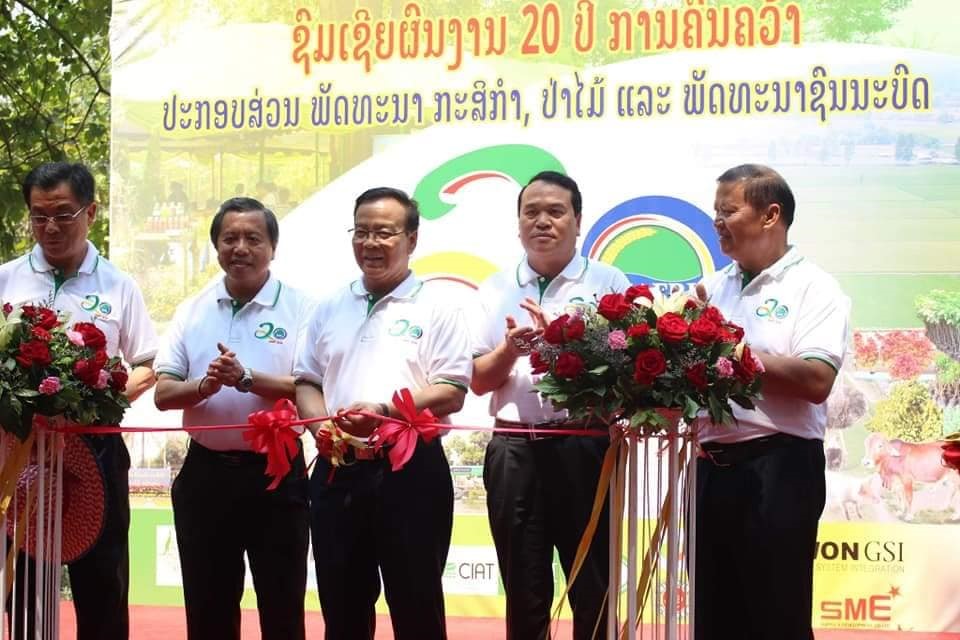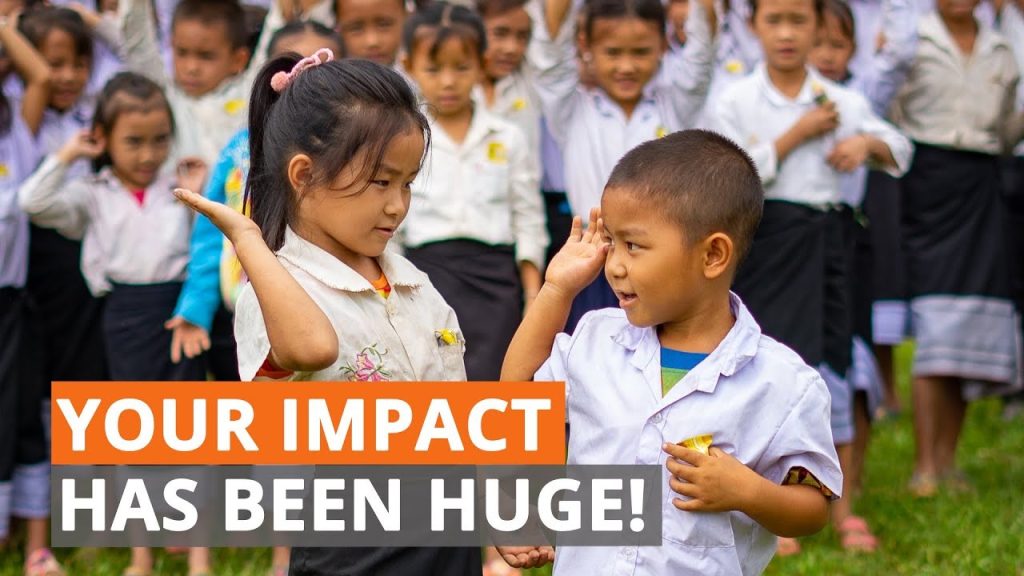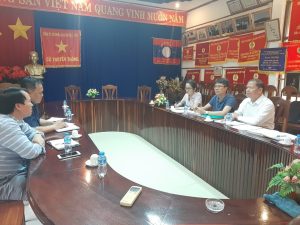Bounthong Bouahom
VISITOR’S VOICE
Interview with Bounthong Bouahom
Lao Rubber Association
Honesty and Perseverance: Must-haves for a Researcher
Please tell us about your research.
My research while at CSEAS as a visiting research scholar is entitled “Natural Rubber Sustainable Development and Responsible Investment in Laos.”
Due to increasing demand and subsequent high prices for natural rubber, investment in rubber boomed in Laos during 2005-2015. The government granted land concessions for rubber production to Foreign Direct Investors (FDI) from China, Vietnam, and Thailand, which significantly contributed to the development of the industry. But many people keep asking the questions, “is this rubber industry fair for the local people and does it contribute to export earnings for the government? Is the investment responsible? How much do smallholders benefit?”
How many research themes do you have?
I worked for almost 20 years at the National Agriculture and Research Institute (NAFRI) as one of its co-founders. The institute conducts agricultural and forestry research; I led the implementation of the following four research programs: agriculture biodiversity conservation and sustainable use, productivity improvement, climate change adaptation, and agriculture policy research.
At present, I work for the Lao Rubber Association, advocating for equitable benefit sharing for small-scale rubber farmers. I also promote responsible investment to foreign rubber companies, encouraging them to consider environmental protection and social welfare apart from profits alone.

Why do you find your research topic interesting?
During the past two decades in Laos, Foreign Direct Investment (with land concessions) in the mining, hydroelectric dam, and agriculture sectors has created tremendous pressure on the environment, resulting in biodiversity loss, land degradation, and worsening climate change. Our research on agriculture biodiversity conservation and sustainable use, productivity improvement, and climate change adaptation is generating results and useful knowledge for society. We organize policy dialogues to deliver the research results to policy makers.
My aim is to use evidence-based research to contribute to sustainable and responsible rubber industry development in the country. Laos currently does not have a national rubber standard. This affects the price that is paid to growers, particularly small farmers. In addition, Lao rubber cannot be exported to countries that require a national standard. Therefore, the foreign rubber companies use their own country’s standard when exporting rubber from Laos.
How did you get started in your research and how did you come to focus on your current research?
Rubber development in Laos is led by FDI. Approximately 70 percent of rubber production areas in Laos are concessions granted to foreign companies; only 30 percent of production areas are owned by smallholders. Therefore, rubber production also causes many challenges for food security, land, labor, livelihoods, and the environment.
The rapid development of rubber production in Laos outpaced the abilities of the government; it was not ready or well prepared in advance for this development. The responsible authorities related to rubber production also did not have adequate capacity and coordination.
Have you had any difficulties in putting together the results of your research into a research paper or book?
It is very important to pose the appropriate and timely questions to research. Data collection, data analysis, and writing are all difficult when putting together a scientific research paper. Writing a research paper is an effort of researchers to communicate with different audiences. Yet it is difficult to present research results for policymakers in a way that the research can be used in formulating policies. In other words, policy uptake of research results is an enduring challenge. Science-policy dialogue is needed to close the gaps between researchers and policymakers.
Can you share with us an episode about any influential people, things, and places you have encountered whilst doing your research?
When I was young and had just graduated from university, I had a chance to network with research colleagues, senior researchers, and research institute representatives when attending regional and international meetings and conferences.
In rural areas of Laos, people are still poor and live in difficult conditions, the biodiversity is under pressure of loss, the environment is challenged by illegal logging and land-based investment. The policy of the government is to promote “Green Growth” and reduce the gaps between urban and rural development. But in real life, the gaps between urban and rural livelihoods remain significant. The question is how can research contribute to improving rural livelihood in the country?
All these factors pushed me to become a researcher and encouraged me to contribute to the establishment of a Lao national agriculture and forestry research system. As a first step in this, I co-founded the National Agriculture and Forestry Research Institute (NAFRI) in 1999.

Which books or people have influenced you?
I first served as a civil servant in the Department of Livestock and Fisheries. There, Mr. Singkham Phonvixay, the Director General of the Department, mentored me as a young staff, passing on valuable suggestions about holistic approaches to farming systems. I respect Dr. Ty Phommasak, the founder of NAFRI, who mentored me in research strategy and vision. I also sincerely respect Dr. Siene Saphangthong of the Ministry of Agriculture and Forestry, who signed the agreement to establish NAFRI and provided us useful guidance in research and research management.
What is your ideal image of a researcher?
I think there is no 100 percent perfect researcher. I work more with the adaptive research and I do not have a chance to do basic research due to limited research facilities in the country.
Society often complains that researchers do research for themselves. The researcher should first pose useful research questions and then try to answer these questions with appropriate methodology. The aim of researchers should not be to produce research papers alone; they need to think about the use of the research results for human beings.
What is your must-have gear for field research and writing?
In agriculture and forestry, field research is critical to generate knowledge, contribute to productivity, and increase sustainability. In-depth understanding of community, livelihood, agroecosystems, and surrounding environments are vital for field research.
In some cases, research results and reports are stored in the library without dissemination and some research findings are not disseminated in usable forms. This should change.
What books can you recommend to a younger people?
Today the youth and researchers have better choices for accessing information and books online through different search engines. However, young people are currently using tools such mobile phones, the internet, and computers to play games and search information that is not useful. Younger people may have their own choice to read a book that they like. The most important thing you gain from reading a book is the knowledge you get from the book and the key messages the writer wants to communicate and deliver.
What would you say to people who want to become researchers?
Research is a scientific and systematic search for pertinent information on a specific topic. Research is hard work throughout the research cycle, from setting the research question, conducting a literature review, writing a research proposal, seeking an appropriate research methodology, collecting and analyzing data, and writing a research paper, to disseminating research results, ensuring research uptake, and utilizing research results. Networking is also very important to discuss and exchange views with colleagues.
If you want to be a researcher, you should have enough patience and enough energy. Dare to express your evidence-based view and be ready to work for society, not for yourself.
But I think that the most important thing a researcher should have is the ethic to be honest and never give up.
What ambitions do you have for the future?
I would like to see more quality researchers and research in Laos in the future. Believing that research is needed for knowledge generation, innovation, and ultimately, for the perspectives to grow the society and ensure the welfare of its citizens. The government should spend more on human resource development and research to generate knowledge and innovation, to contribute to national socio-economic development, and to reduce the exploitation of natural resources.
I am impressed with Kyoto University’s motto “freedom of academic culture.” This is the dream of a researcher—to be free to express their view.
I hope that researchers and policymakers will have more dialogue in the future. The policy-making process largely occurs without any research input or the support of scientific evidence. In Laos today, socio-economic development policies and plans heavily depend on the exploitation of the country’s natural resources. This, coupled with improper management mechanisms and laws, has created tremendously negative impacts on people’s livelihoods and the environment. With these poor policy outcomes becoming obvious over the past 20 years, policymakers and decision-makers are increasingly open to evidence-based recommendations and actively seek advice from researchers. Thus, I am hopeful that the science-policy nexus in Laos will gradually emerge and take shape.
(July 2022)
Bounthong Bouahom is a Visiting Research Scholar of CSEAS
from July – October 2022
